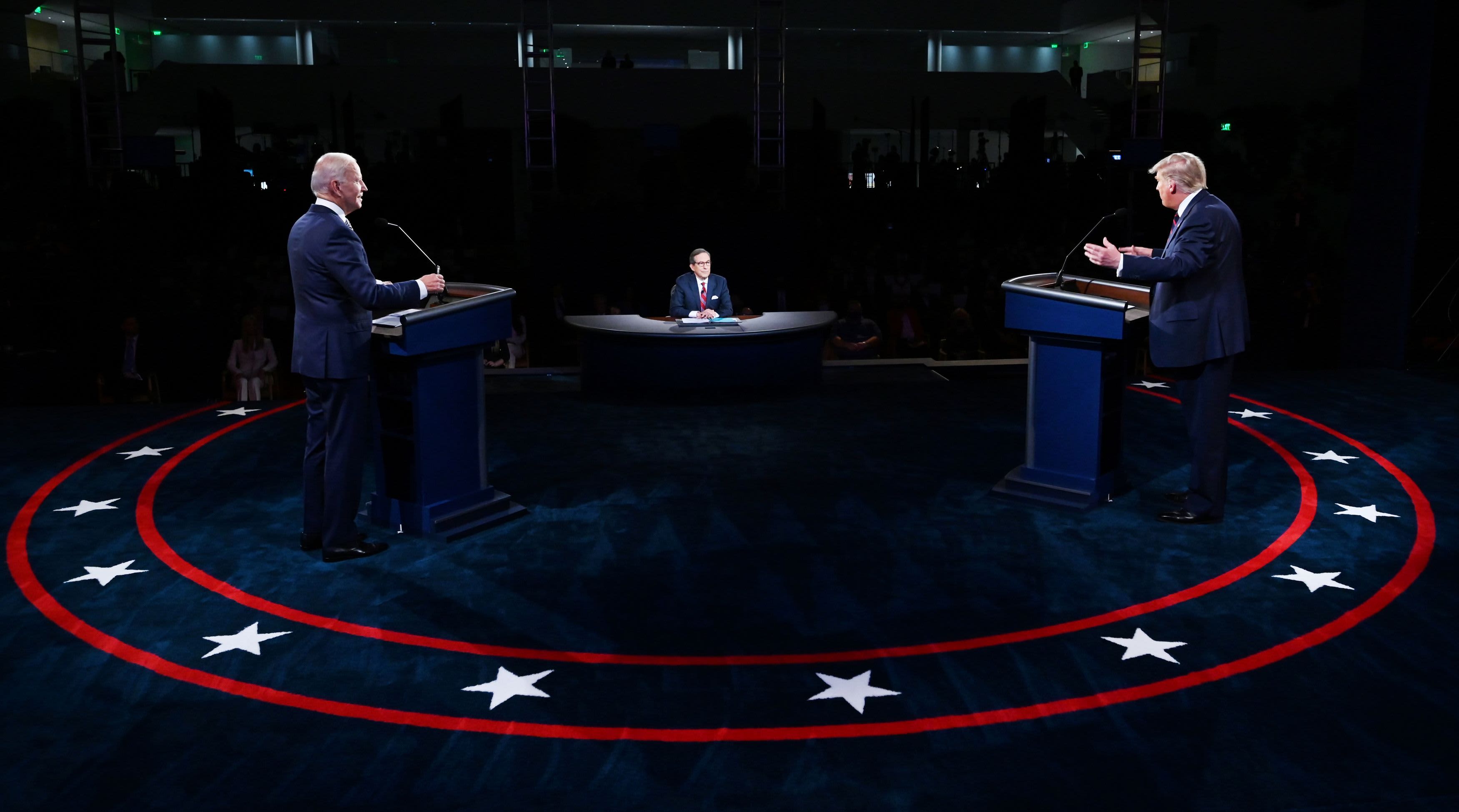How the US election will shape digital tax talks is a ‘million-dollar question,’ OECD hopeful says

U.S. President Donald Trump and Democratic presidential nominee Joe Biden participate in the first 2020 presidential campaign debate held on the campus of the Cleveland Clinic at Case Western Reserve University in Cleveland, Ohio, U.S., September 29, 2020.
Olivier Douliery | Reuters
LONDON — When U.S. voters go to the polls to elect a new U.S. president their choice will also shape the course of international talks over digital taxation, a thorny subject that has divided the U.S. and many European nations for years.
The OECD (Organization for Economic Cooperation and Development) has hosted the negotiations but postponed a deadline for an agreement into 2021 after the U.S. pulled out of talks in June due to the coronavirus pandemic.
Speaking to CNBC, Anna Diamantopoulou, one of the candidates to become the next OECD chief when the current Secretary General Angel Gurria leaves the post in May 2021, said that just how the election result will impact the talks is the “one-million-dollar question,” but it is an “extremely important” issue that needs to be fixed.
“We know that there are different approaches among the two (candidates),” Diamantopoulou said.
“We know that Biden is more conventional and more friendly to the international organizations generally,” she said, while adding that the OECD will have to work on digital taxation irrespective of the election result.
An NBC News/WSJ poll showed on Sunday a 10-point lead for Former Vice President Joe Biden over U.S. President Donald Trump.
The Trump administration has targeted plans from different governments to impose higher taxes on U.S. “Big Tech,” America’s largest tech companies including Amazon and Apple, arguing that the levies discriminate against such firms. Meanwhile, Joe Biden has advocated for higher corporate taxes in the United States, but political experts doubt he will immediately unlock the negotiations at the OECD level.
“In the end of the day maybe we cannot have the agreement we all want but we will find a way out,” Diamantopoulou said, adding that a deal might be reached by the end of 2021 or beginning of 2022.
Conversations over digital taxation have been under the spotlight even more in the wake of the coronavirus, as tech giants such as Alphabet and Facebook have profited from stay-at-home orders.
The OECD said last month that tensions over digital tax could trigger a trade war that could wipe 1% of global growth every year.
“The absence of a consensus-based solution … could lead to a proliferation of unilateral digital services taxes and an increase in damaging tax and trade disputes, which would undermine tax certainty and investment,” the Paris-based institution said in a statement.